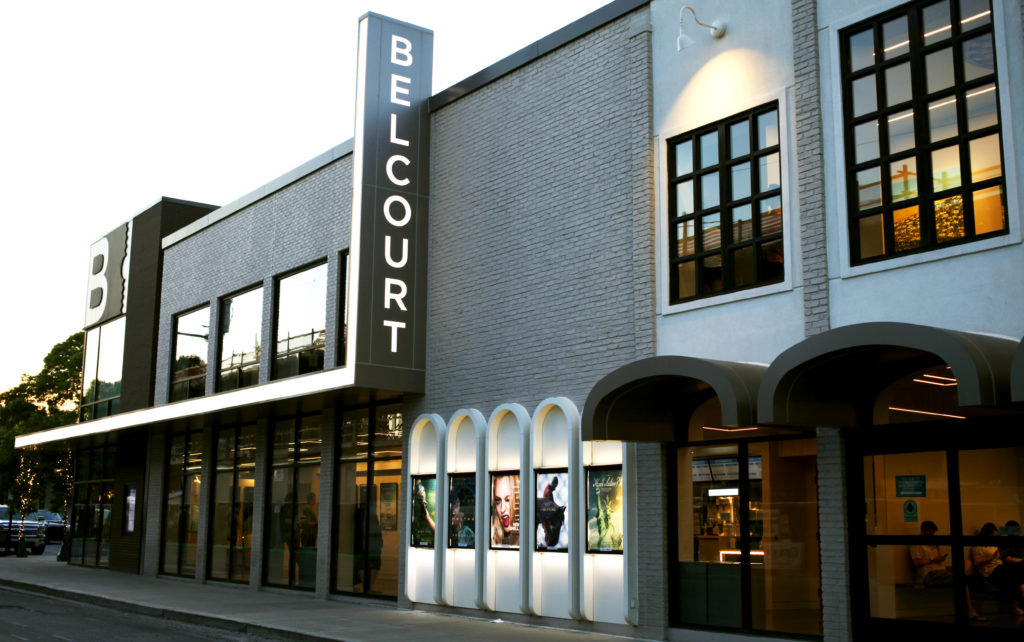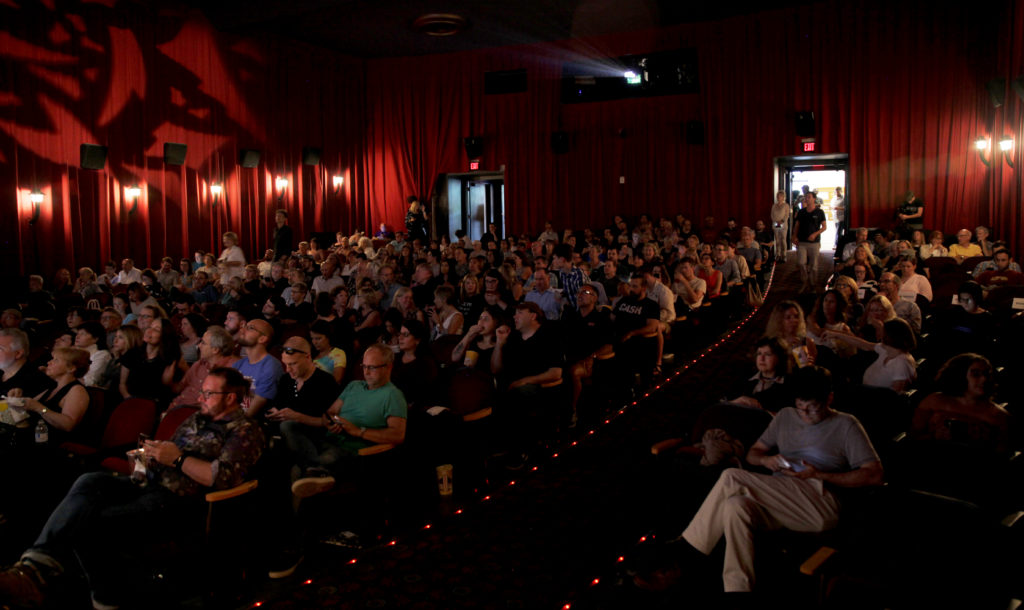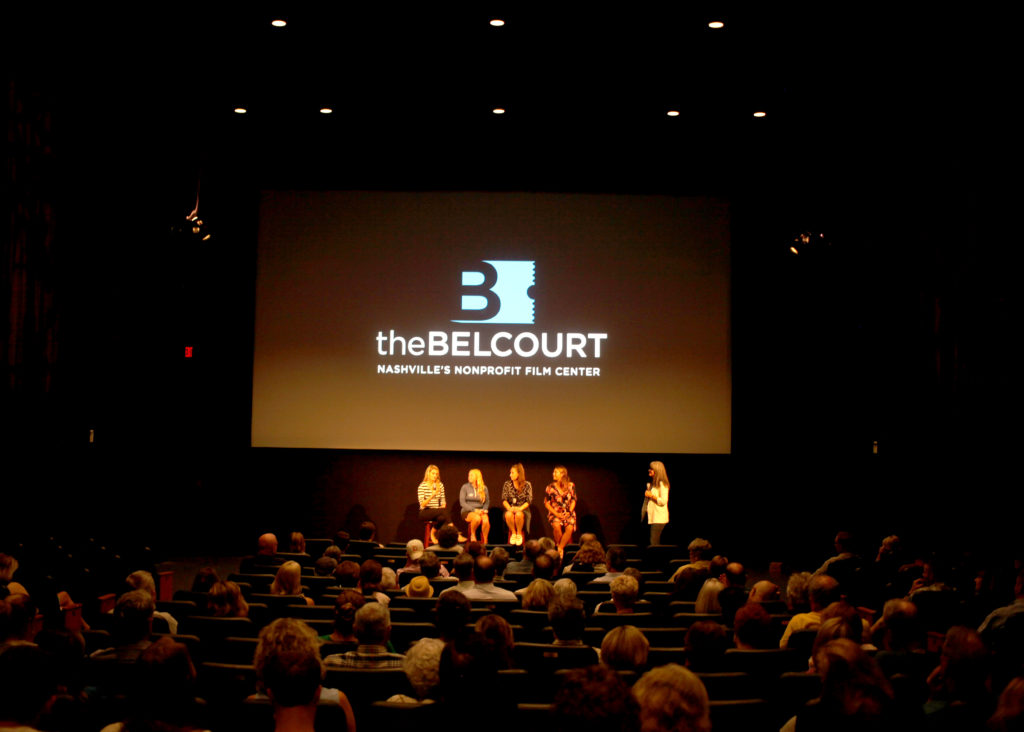Finding a live-music venue wasn’t going to be too difficult for Stephanie Silverman, especially not after moving to a city like Nashville. “My husband is a musician,” says the art house executive. “Nashville is a natural meeting point for his profession.” After establishing her career at arts nonprofits—building audiences and driving attendance at live performances like modern dance—Silverman spent more time in her new surroundings looking at positions that would fit with her professional background. That’s when, in 2007, she found an opening at the storied Belcourt Theatre, originally opened in 1925 and undergoing a transition as a community-driven nonprofit art house since 1999. Since joining the Belcourt, Silverman and her team have helped grow the Belcourt into one of the country’s most dynamic and iconic art house cinemas. Boxoffice Pro spoke with Silverman ahead of Art House Convergence, where the Belcourt’s executive director is set to receive this year’s Founders’ Distinguished Service Award.

How did you find yourself working in exhibition in general, and at the Belcourt specifically?
I moved here with my husband, a musician, after having worked in a lot of different arts organizations, mostly in the contemporary performance realm. This job came up at the Belcourt, a nonprofit doing contemporary programming along with repertory—the sort of programming that needs audience-building around it. That can be a little more challenging than promoting standard fare, and although it isn’t modern dance, it still fit my skill set. I was used to trying to build an audience around somewhat more challenging content that needed deeper community engagement. It seemed like a good fit when the job came open, even if I did not know much about exhibition. It was that sort of nonprofit performing arts background that led me to think it would be a good fit. The board agreed; they hired me and it turned out that the timing was perfect. That kind of sensibility—a community engagement mentality—aligned with what my colleagues were doing nationally at other organizations.
The Belcourt has had a storied history. What was the theater like when you first joined?
I feel like I came in at a really lucky point for the institution. The Belcourt has been around serving this community since 1925. It was a movie house at the outset, designed with a stage and the flexibility to do performances—the vaudeville model. It was a real neighborhood theater. It was not a downtown house, not a glamorous theater; it was really built to be a workhorse. It had been through many iterations, including a long stint as part of the Carmike circuit. But by the time the ’90s came around, it had fallen into a period of real peril.
In the mid- to late ’90s, a community group gathered to save the theater. When the group was doing its work of saving the building, it formalized the Belcourt as a nonprofit. I came in about five to six years after it had become a nonprofit. And those first years as a nonprofit are brutally difficult for any arts organization, especially for a theater that hasn’t found traction. It had been here forever, but it was struggling for a reason. We were very lucky to have a very supportive and really active board, along with donors who saw us through some bumpy financial times. And of course, a great staff who had come on to do all kinds of different jobs in those early years, turning into really talented operators of a theater. Toby Leonard, number one among them, who was becoming a really good film programmer. I got to come in as, as things were sort of settling down, when we were beginning to make some money at the box office. We were doing a good number of concerts during that year, we still had a theater company in residence, and it was in its early days of a multi-arts kind of venue. We would program great films, music, and theater. And although we were doing all those things, it was also proving to be not all that sustainable.
How were you able to turn that around? It’s not easy to stand out as an entertainment venue in a market like Nashville.
The one thing that was really getting traction was the films; we were doing something no one else in town was doing. There’s not a shortage of music venues in a town like Nashville. We were a unique kind of venue, but there were other places where you can sell a ticket to see a concert. There were things that we didn’t even know at that point that were just coming online that, had we decided to become a music venue, would have been real competitors for us. But the films—we were really the only people doing this kind of programming in our area, both for the first-run new releases and our repertory slate. When I came in, we were in the middle of a really successful run of Pan’s Labyrinth and this great repertory series of the Janus films.
It was really emblematic of what was special about the Belcourt, what we could be to the city, and what the city was responding to. Nashville is a town of artists, transplants, filled with university educators. It’s a place where people move to and may want to look for something like the Belcourt when they get here. And we were kind of doing it, but it was mixed in with a lot of other stuff. The thing that I brought to the table when I came in was the ability to hone the mission down a little more specifically: Let’s do what we’re doing best and what we’re serving our community with most meaningfully. That was the film program.

How has that influenced your programming strategy?
We program from the film first. That is why it’s important for us to be able to fundraise; not every film necessarily performs in the sort of traditional box office sense, where each film pays for itself. Every film we bring is one that we felt was important to screen in our community and that we stand behind. Everything we do is oriented around that. We start with the movie first and then we find how to make the operation successful, regardless of its box office return.
The Belcourt has also evolved as more than just a movie theater, incorporating an educational program and embracing community initiatives. Your audience building doesn’t stop at the box office.
It’s really important to be in conversation with your community. We are a from-the-ground-up organization, so it’s important for us to build an education component. Everything that happens in the theater—following or before a film—is connected to our own programming. We also have an education program that is out in the community. We have something called the Mobile Movie Theater, where we take film out into all kinds of different settings: from schools to community centers and places where homeless adults gather. We have a pretty broad impact using film in those settings to be an instigator or educational tool for all kinds of different conversations.
It’s not only about the movie; it’s the movie plus the experience, plus the conversation, plus the connection to the community. In a city full of venues, particularly music venues, you know automatically that you will have a different venue for jazz, a symphony orchestra, and an arena concert. You never question having those different kinds of venues that approach the work differently. I think that was the thing we had to understand about ourselves: as a nonprofit film exhibitor, we approach our work a little differently. The love of film throughout the exhibition business is fundamental, but it makes sense that there would be different approaches to the way we show those movies and the way we build those audiences.

Was there a turning point during your tenure when you realized that the Belcourt had made it through its most difficult period?
Honestly, it has been a slow and steady build. We saw, year over year for many years, about a 12 percent increase of people buying tickets. We dipped our toe in the water around 2010 with an early campaign to raise money just for new seats and new carpets. That helped us realize people were willing to support us with capital work and maybe we could raise much more money for a larger capital campaign. The real turning point was saying, “We are a film house. That is what we are.”
The movies are what we curate, what we’re talking to this community about; that is what we are authentically bringing to Nashville. Everything else, you can rent the theater … what we’re programming, what we’re curating—it’s all about the film. We live in a city that is exploding population-wise, a lot of people are moving here all the time, and while there are benefits and challenges to that when you live here … it’s been nothing but beneficial for the Belcourt.
The people who are moving here are looking for a place like our theater to be their home away from home. They certainly look for it in terms of the kind of cultural mapping they do when they look at new cities: Do we have a great museum? Do we have a good ballet company? Do we have a great film center? We’ve really benefited from that boom. I think it’s been a big part of our ability to grow.
While you had ample experience at arts nonprofits, you mentioned you were new to exhibition when you first started at the Belcourt. Did you have any mentors as you began to tackle some of the operational challenges that presented themselves?
My executive director colleagues from the earliest days of the Art House Convergence have been incredible sounding boards. There is this feeling of family that exists within our little slice of the exhibition world. The Michigan Theater in Ann Arbor, the Coolidge Corner in Boston, the Jacob Burns Film Center in Pleasantville (NY)—all these theaters have been our siblings as we run our programs and do things in our own unique way. Programs like our education work, we looked at the Jacob Burns Center and learned deeply from their model, taking what they’ve done and applying it independently in our own community. When we were thinking about a capital campaign, we went to Russ Collins at the Michigan Theater and asked him how he tackled it. Those relationships have been a cornerstone of my ability to do my job here.
What does it take for an art house to thrive in today’s media and entertainment environment?
I am frequently frustrated by the constant narrative that somehow the exhibition world is just going to go away. In light of a lot of really important conversations that are happening now—from the Paramount consent decrees to consolidation in our industry to the emergence of streaming services—there are a lot of changes in our environment. There always have been, and there always will be. But art houses, and it’s especially my feeling for the Belcourt, I think we’re actually positioned to be really effective at responding to those changes in the environment. We’ve worked really hard to build our audience. We’ve done it from the ground up. We know how to do it; it really is a person-to-person business. We are able to talk to our audiences directly; we know who they are and say hello by name when they come through our doors. We’ve built the marketing prowess and have the recognition from our community about who we are. We have not only been successful in this period of great change in the last decade, but we have thrived. I think the Belcourt, and the art house community in general, is poised to be deeply responsive and effective through these continued changes affecting our industry.
The post AHC 2020 Founders’ Distinguished Service Award: Stephanie Silverman, The Belcourt Theatre appeared first on Boxoffice.
from Boxoffice





0 comments:
Post a Comment